No fourth stimulus check will help you as major COVID aid programs end in the US
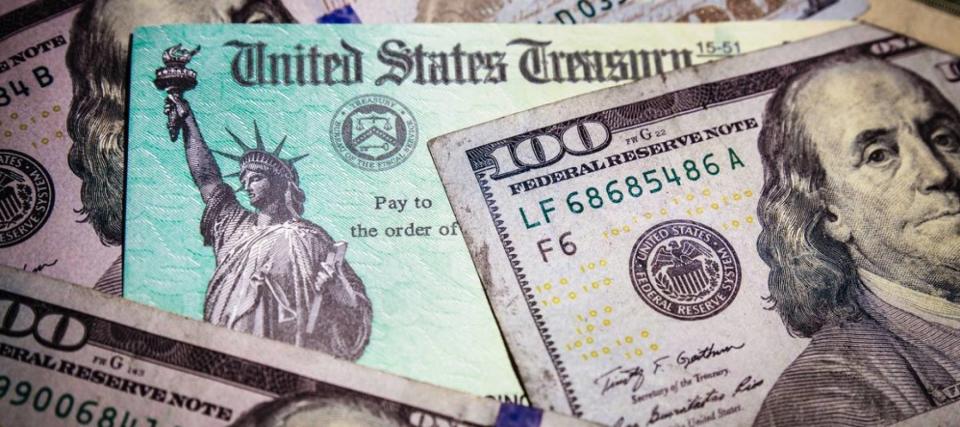
The delta variant threw a wet blanket on Americans’ summer when the government had hoped the economy would roar back and lift struggling people into jobs and financial stability.
Now the fall brings uncertainty for millions because the top COVID-19 relief measures expired in recent days, at a time when the country is still logging 100,000 new coronavirus cases daily, according to Centers for Disease Control and Prevention data.
A fourth pandemic stimulus check is not likely with interest bottoming out in Washington, but some assistance is still going out to narrower groups of people. And there are other ways that U.S. households struggling to pay bills and deal with debt can help make up for aid that has been lost.
Core COVID relief programs ending
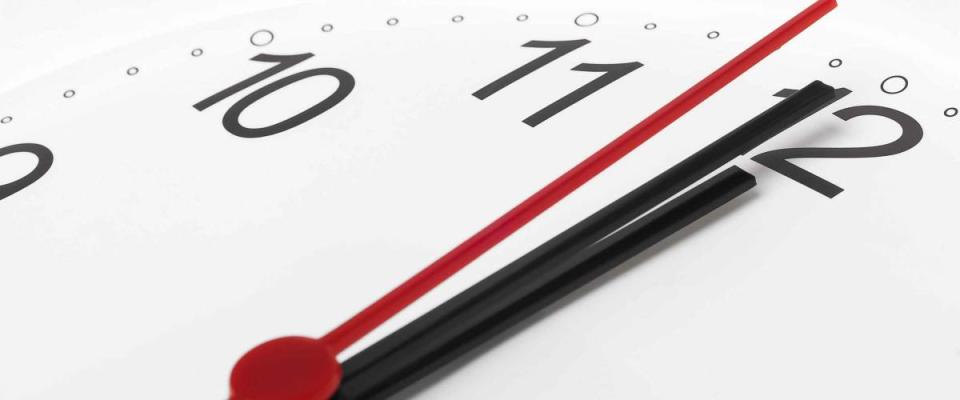
The $1.9 trillion pandemic federal rescue package signed in March is probably best known for the $1,400 stimulus checks — the third direct payments of the COVID crisis — distributed to a large chunk of Americans.
Time has run out on several forms of emergency assistance in that package. Here are the programs wrapping up, with expiration dates.
1. Beefed-up unemployment benefits
President Joe Biden’s American Rescue Plan granted a $300-per-week boost to anyone receiving unemployment benefits. Those extra payouts ended Sept. 6, Labor Day, though more than two dozen states cut off the federal pandemic benefits early.
Two other programs ended that day: unemployment checks to gig workers and independent contractors during the crisis, and an emergency extension that gave jobless Americans an extra 13 weeks of benefits.
Overall, about 7.5 million people lost these unemployment benefits, according to an analysis by the Century Foundation.
2. Health insurance help
The government has paid 100% of the health insurance premiums of laid-off workers who keep their job-based coverage through what's called the COBRA law. But that benefit stopped Sept. 30, and people may need to find new health insurance because COBRA coverage is expensive.
3. A larger child tax credit
Since July 15, the government has sent households with kids monthly "family stimulus checks" under a one-year expansion of the child tax credit. The payments will total up to $1,800 for each child under age 6 and $1,500 for kids 6 through 17, depending on your income.
But the final payment is scheduled for Dec. 15. Democrats in Congress are trying to keep the larger child credit going.
4. Eviction protection
A U.S. Supreme Court decision brought an early end to a nationwide eviction ban that was scheduled to run through Oct. 3. Many local governments still put a moratorium on evictions, but some of those bans end soon. More than 3 million renters say eviction is "very" or "somewhat" likely within the next two months, according to census data.
Some COVID relief that’s still out there
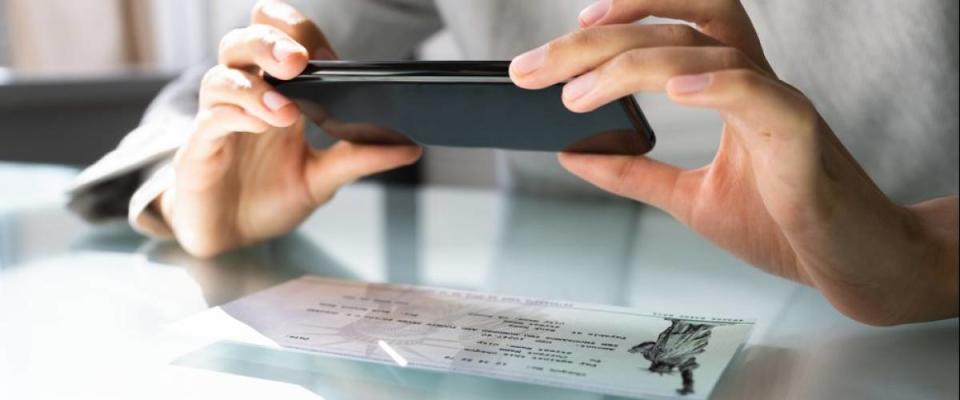
1. Rent assistance
The last two COVID stimulus packages provided about $47 billion in rent relief, and the majority is still available after a slow rollout. Payouts are picking up as the administration cuts red tape.
Apply for the rental assistance through state and local housing agencies.
2. State stimulus checks
California is about to mail checks of $500 to $1,000 for its second round of stimulus payments. It’s among 10 states offering stimulus checks.
3. Help for some types of workers
Some states are using a portion of their COVID relief money to pay teachers bonuses, and the federal government set aside $700 million for stimulus checks for certain food industry workers.
4. A bonus for new parents
People who had a baby in 2021 might not realize that they’re eligible for the bigger child tax credit. If you didn’t [apply for early payments](People who had a baby in 2021 might not realize that they’re eligible for the bigger child tax credit. If you didn’t [apply for early payments]( for your newborn, you can expect the full credit of $3,600 per child when you file your 2022 taxes.
People who had a baby in 2021 might not realize that they’re eligible for the bigger child tax credit. If you didn’t apply for early payments for your newborn, you can expect the full credit of $3,600 per child when you file your 2022 taxes.
Plus, babies born in 2021 are eligible for $1,400 stimulus payments. If you don’t let the IRS know you’ve had a baby, you’ll have a stimulus check coming next year after you notify the government about your new dependent at tax time.
Is there any chance of a fourth stimulus check?
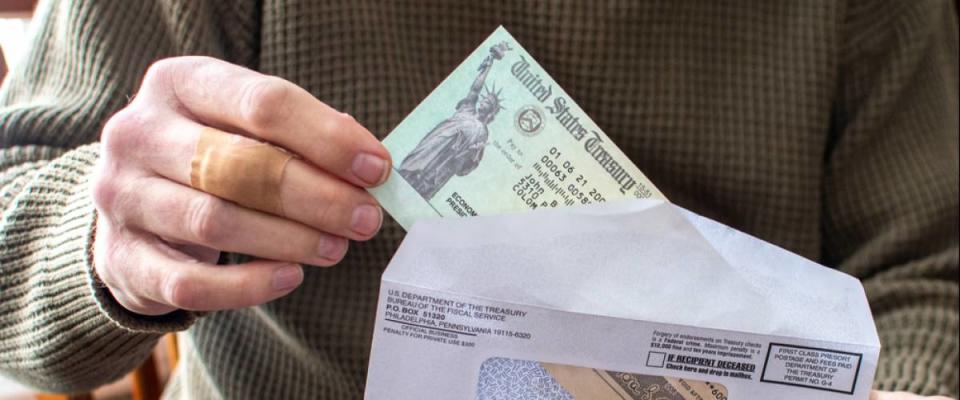
As the pandemic safety net shrinks while COVID delta surges, many are hoping the government will come through with a fourth stimulus check.
An online petition that calls for monthly payments of $2,000 for every adult in the U.S. and $1,000 per child — through the end of the crisis — has gotten more than 2.9 million signatures.
But Congress is tied up with an impending deadline to raise the nation’s debt ceiling, a $1 trillion bipartisan infrastructure spending bill, and the $3.5 trillion Democratic budget bill.
That massive spending blueprint does not include a new stimulus check.
Make your own stimulus
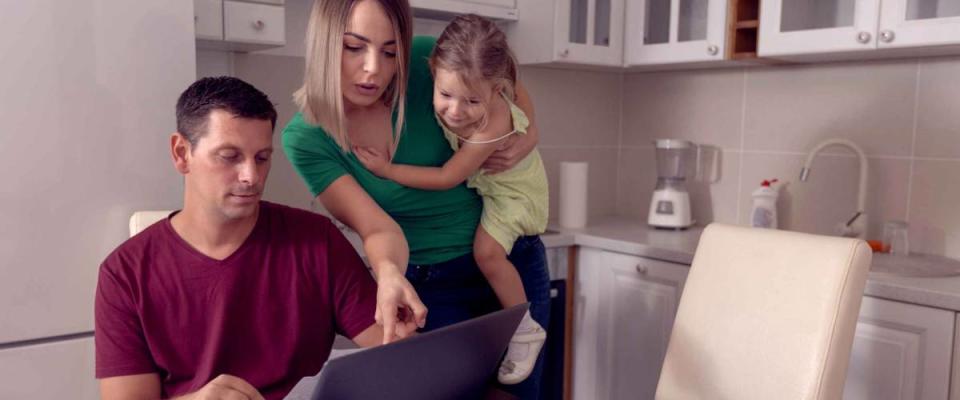
Since you can't count on another check from Washington as the pandemic lingers, here are a few places to look for savings:
If you carry multiple credit card balances and other high-interest debt, you might roll them into a single debt consolidation loan. You’ll have only one payment to budget around, the lower interest rate will slash the cost of your debt, and you may be able to pay it off faster.
Do you own a home? Thirty-year mortgage rates remain comfortably below 3%, and if you haven't refinanced lately you could be missing major savings without a fresh mortgage rate comparison. Nearly half the homeowners who refinanced over the last year are saving $300 or more per month, according to a recent Zillow survey.
Prices can be all over the place when you shop online, so make sure you don't overpay. A tool to compare prices automatically hunts for better deals and coupons before you click "buy."
You don't need another stimulus check — or much money at all — to earn returns in the stock market. A popular app helps you build a diversified portfolio by investing your “spare change" from everyday purchases.
This article provides information only and should not be construed as advice. It is provided without warranty of any kind.
